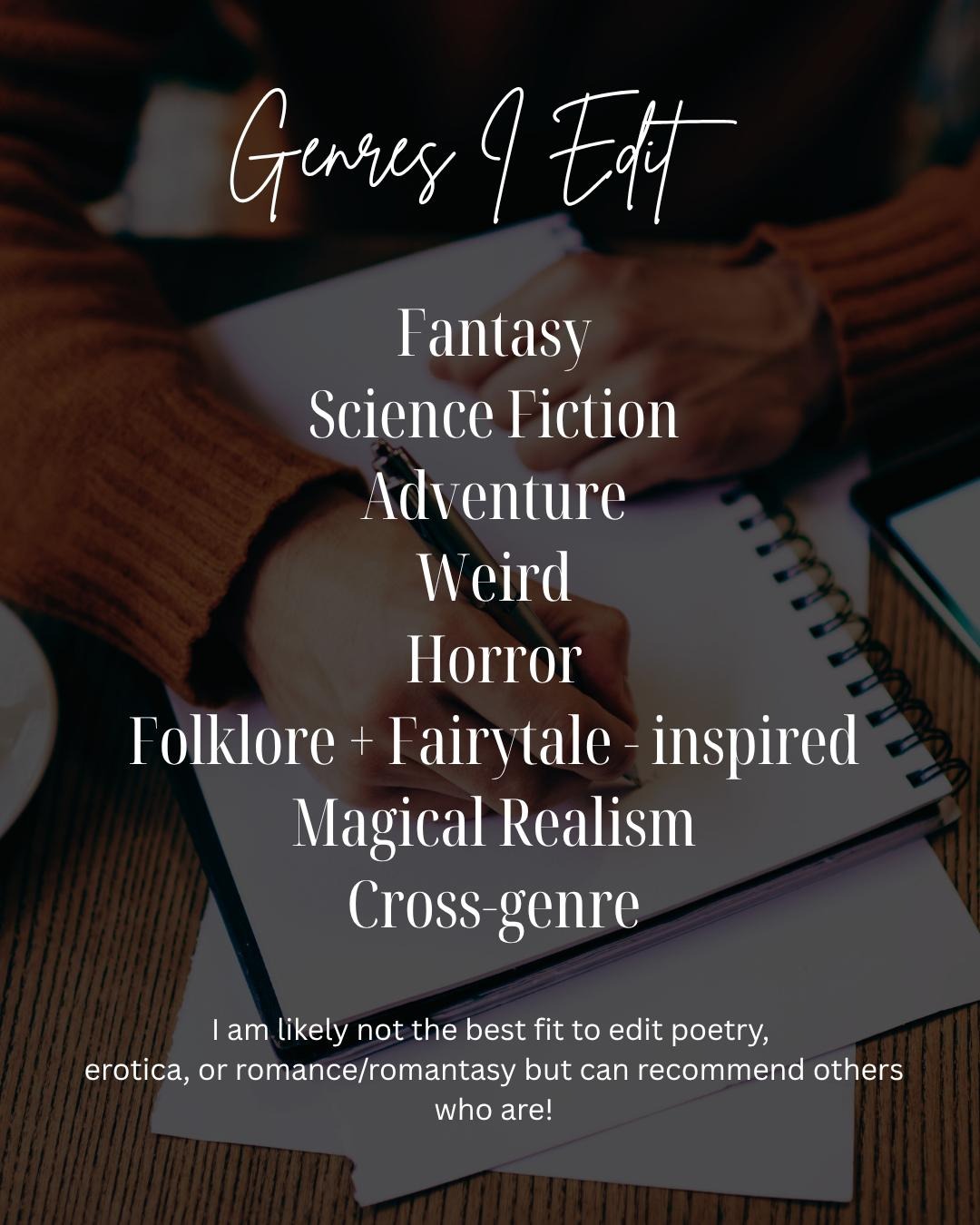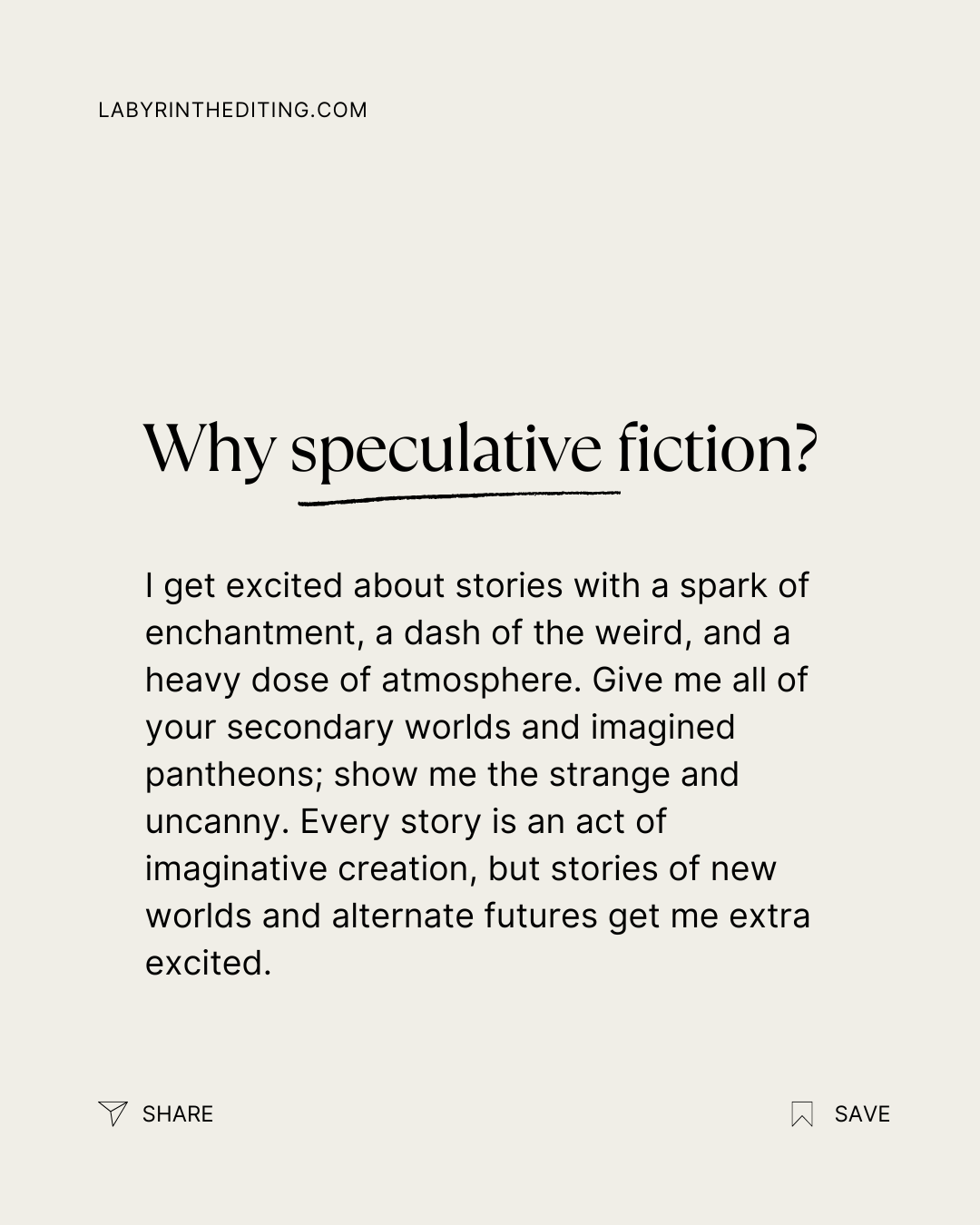

Today we’d like to introduce you to Greta Valentine.
Hi Greta, we’d love for you to start by introducing yourself.
Storytelling has always been a big part of my life, whether that’s been through reading, writing, or in the case of my last job, telling stories via quantitative and qualitative data analysis. I’m currently a developmental editor, which means that I read early drafts of novels and short stories and collaborate with the author to make sure their story is working on a big-picture level. I came to editing through writing genre fiction – mostly fantasy. I would critique short stories and novels for friends in my writing groups, and one of them suggested that I look into professional editing. I started taking classes through the Editorial Arts Academy and Editorial Freelancers Association about three years ago, and started freelancing in 2023. This year I was lucky enough to start editing full time!
I’m sure it wasn’t obstacle-free, but would you say the journey has been fairly smooth so far?
I love working with authors to shape their stories, but there was a whole business side I had to learn, too. I’m sure that other freelancers are quite familiar with the tradeoff of getting to make your own schedule and do work you love, but also being your own financial strategist, business planner, and marketing department! It’s a lot of hats to wear and sometimes I’d rather just work with stories and authors, but it’s also been a good opportunity to learn all those skills.
It’s also been a challenging time to take on an editing career with AI becoming so prevalent in creative spaces. I think some people approach the revision process with the perception that AI can accomplish a lot of what a human editor can do at a fraction of the cost. While it’s certainly true that AI tools can recognize patterns in grammar and word choice to an extent, there’s really no replacing the human element in writing when it comes to the emotional weight of a story and honoring an author’s unique voice, so it’s been a challenge to help dispel some of those ideas.
Great, so let’s talk business. Can you tell our readers more about what you do and what you think sets you apart from others?
I am a developmental editor of fiction, which means that I work with authors after they’ve completed a draft of their novel or short story. I’ll read their work and let them know how their story is working at a big-picture level. I’ll be asking questions like: do their characters have clear goals, and reasons they want to pursue those goals? Are they behaving in a believable way? Does the story progress logically and keep readers invested? These are some of the questions we’d want to address before editing grammar or prose, in case the story requires any structural changes.
I also chat with the author about their goals for their story. Do they have a particular theme they want to highlight, or a specific audience in mind? Knowing what they’d like to accomplish will guide my feedback, and I’ll be able to use my knowledge of writing craft to help them strengthen what’s working, or revise what’s not. My services include two levels of depth, depending on where the author is at in their process. A manuscript evaluation is more general and high-level. I’ll read their story, let them know its general strengths and weaknesses, and provide some suggestions for revision. Those are a good choice for folks who are maybe still figuring out their story and need some direction so they can finish their draft. A full developmental edits gets deeper into the nitty-gritty details, and is a good choice for writers who have done as much self-editing as they can on their own. I’ll go into more detail in the editorial letter and work with them on a plan for implementing revisions.
I work particularly with authors of speculative fiction (fantasy, science fiction, horror, or other genres that contain elements not found in the real world). I think speculative fiction is a powerful tool for capturing readers’ imaginations, and allowing writers to say true things about our own world or internal experiences. These kinds of stories act as an escape from our world, but can mirror it at the same time. Fantastical stories can speak to the heaviness readers might see or feel in the world around them and give them characters that feel like companions in navigating difficulties they can relate to in their own lives. Maybe these stories can even show what it looks like to be hopeful or retain humanity in the face of that darkness. Speculative fiction is also just a great way to showcase an author’s incredible imagination, and explore compelling “what if?” questions.
Something that makes my business stand out is that I provide Book Maps in addition to the typical assessment of a story that most editors provide. Book Maps are structured documents tracking various threads across the whole story, such as character arcs, subplots, and worldbuilding unique to the author’s story. This can be super helpful when someone is writing a huge fantasy novel with lots of invented magic, many point-of-view characters, or lots of intertwining sub-plots! It’s useful for keeping track of the story at a glance and allows the author to see where certain story threads begin and resolve, if there’s information missing, or whether the story’s pace is too fast or too slow.
In terms of what I’m most proud of brand-wise, I would say that it’s really important that the authors I work with see me as a collaborator and cheerleader in addition to providing criticism. I’m a reader with my own tastes and preferences, but when I work with a writer, it’s my job to understand and support their goals with a story, not my own. I’m there to understand what they’re trying to accomplish and give them the tools to do that. My tagline is that I provide feedback that is “actionable, clear, and kind.” I want my clients to be excited to start revising their stories, and that’s really difficult to do if you feel like someone has torn your story apart, or doesn’t understand what you’re trying to do! There are of course constructive ways that I’ll be able to point out what isn’t working, but I’ll always try to frame that in a way that serves accomplishing the author’s vision. And if I don’t also leave encouraging comments about what the author is doing well, I haven’t done my job.
What makes you happy?
It makes me really happy to be able to make writers feel seen and heard regarding their work. Sharing a story can be a really personal and vulnerable thing. I want to be someone who takes both the writer and their work seriously, because not everyone I work with has someone in their life that they can talk to about their stories and why they’re writing them. I love it when an author tells me that my feedback helped them to get un-stuck, or that it sparked an idea about a way to make their story stronger. I love being able to contribute to that momentum, especially if it means that they’ll keep showing up to make art. And then of course hopefully they’ll go on to publish and share those stories with readers who will feel seen and heard in turn.
Pricing:
- Full Developmental Edit: $0.020/word
- Manuscript Evaluation: $0.015/word
- Short story critique: $30 for up to 1500 words; $0.012/word for stories over 1500 words
Contact Info:
- Website: https://www.labyrinthediting.com/
- Instagram: https://www.instagram.com/labyrinth.editing/






Image Credits
Faith Valentine (photos of me); @GaudiLab via Canva.com for the images in the background of my Genres and Rates information












